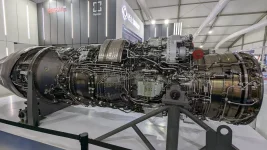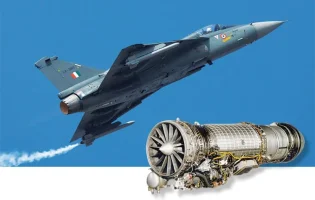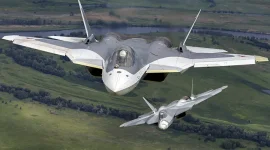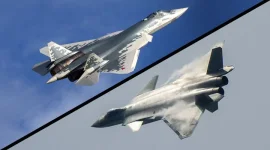- Views: 2K
- Replies: 14
Air Chief Marshal Amar Preet Singh, Chief of the Air Staff, has voiced concerns over the slow production rate of the indigenous Light Combat Aircraft (LCA) Tejas Mk1, emphasizing the need for private sector involvement to bolster production.
Speaking at a press conference, the Air Chief revealed that less than 40 Tejas Mk1 jets have been inducted into the Indian Air Force (IAF) since 2016, a figure significantly lower than anticipated. This shortfall contributes to the IAF's ongoing struggle to maintain its authorized strength of fighter squadrons.
"The Tejas aircraft has been with us since 2016, but the numbers we’ve seen inducted are not commensurate with our requirements. We need to do something about it,” stated Air Chief Marshal Singh.
The Tejas, a cornerstone of India's pursuit of self-reliance in defence manufacturing, has encountered various production hurdles, including supply chain disruptions, challenges in technology absorption, and limited manufacturing capacity.
To address these issues, Air Chief Marshal Singh advocated for the inclusion of private sector companies in the Tejas production process. He argued that Hindustan Aeronautics Limited (HAL), the primary manufacturer, faces limitations in scaling up production to meet the IAF's requirements.
"I am convinced that private sector companies are required to ramp up the production of the aircraft," he asserted, suggesting that a collaborative approach could significantly accelerate manufacturing.
This call for increased private sector participation has ignited a debate on how to effectively integrate private capabilities into India's defence industry, particularly for crucial programs like the Tejas. As India strives for greater self-sufficiency in defence, the involvement of private enterprises in such pivotal projects could prove decisive.
This situation echoes similar challenges faced in other indigenous defence programs globally, where balancing public and private sector roles is crucial for achieving production targets and technological advancements.
The Air Chief's statement underscores the urgency of addressing production bottlenecks to ensure the IAF's operational readiness and highlights the potential of public-private partnerships in bolstering India's defence capabilities.




